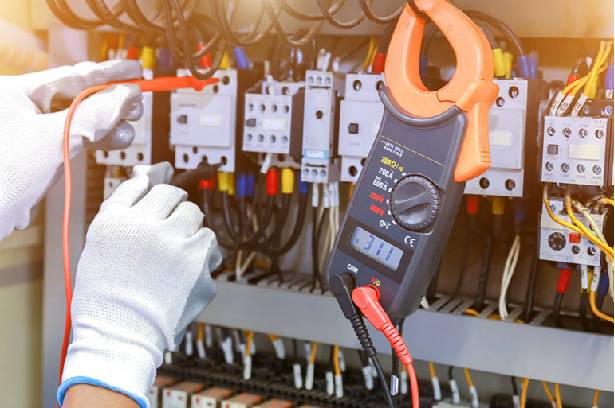In the UAE, where urbanization, rapid development, and sustainability are pivotal to the nation’s growth, facility management has become a key player in enhancing the sustainability of buildings. As the country strives to meet ambitious environmental goals, facility management services help ensure that buildings are energy-efficient, eco-friendly, and aligned with sustainable practices. By incorporating energy-saving techniques, promoting resource conservation, and adhering to environmental standards, facility management services are integral to maintaining and improving the sustainability of buildings in the UAE.
This blog explores the essential ways in which facility management services contribute to sustainable buildings in the UAE and the positive environmental impact they bring.
1. Energy Efficiency and Management
Energy consumption in the UAE is high due to the extreme climate, with air conditioning and lighting being the largest consumers of energy in commercial and residential buildings. Facility management services help reduce energy usage by implementing various strategies aimed at optimizing energy efficiency:
- Energy Audits and Monitoring: Facility managers conduct routine energy audits to assess a building’s energy consumption patterns. By identifying inefficiencies, such as outdated systems or energy wastage, they can make informed decisions about upgrades or changes that will reduce energy use.
- Smart Building Technologies: The implementation of Building Management Systems (BMS) allows facility managers to monitor and control energy consumption in real time. These systems regulate heating, cooling, lighting, and ventilation, ensuring that energy is used only when necessary, and that systems operate at peak efficiency.
- LED Lighting and Energy-Efficient HVAC: Facility managers often replace outdated lighting with LED technology, which uses less energy and has a longer lifespan. Similarly, energy-efficient HVAC systems help optimize climate control without consuming excessive amounts of power.
- Demand-Control Ventilation: By monitoring the building’s occupancy levels, facility managers can adjust ventilation and HVAC systems accordingly, reducing unnecessary energy use when fewer people are in the building.
By improving energy efficiency, facility management services significantly reduce operational costs and the carbon footprint of buildings, contributing to the UAE’s long-term sustainability goals.
2. Water Conservation
Water conservation is crucial in the UAE, where water resources are scarce and demand is high. Facility management services help buildings conserve water by implementing smart water management practices, ensuring that every drop is used efficiently. Key strategies include:
- Water-Efficient Fixtures: Facility managers install low-flow faucets, water-saving toilets, and efficient showerheads to reduce water usage without sacrificing comfort or functionality. These fixtures minimize water waste, especially in high-traffic areas like bathrooms and kitchens.
- Water Recycling Systems: Some buildings incorporate water recycling systems, where treated wastewater is reused for purposes such as irrigation, cooling towers, or flushing toilets. Facility managers oversee these systems to ensure that they function optimally and comply with local environmental standards.
- Rainwater Harvesting: In some properties, rainwater harvesting systems are put in place, capturing and storing rainwater for non-potable uses. This reduces the demand for freshwater and helps alleviate pressure on the local water supply.
- Leak Detection and Maintenance: Facility managers perform regular checks on plumbing systems to identify leaks or faults early, minimizing water wastage. Prompt repairs and regular maintenance of pipes and fixtures help conserve water and ensure systems are working efficiently.
These water-saving initiatives help buildings in the UAE reduce their water consumption and environmental impact, contributing to sustainability goals.
3. Waste Reduction and Management
In line with sustainable practices, waste management plays an important role in facility management services. Proper waste management reduces the amount of waste sent to landfills and encourages recycling and the reuse of materials, helping buildings minimize their ecological footprint.
Facility management services contribute to effective waste management by:
- Waste Segregation: By establishing systems for sorting waste, facility managers ensure that recyclable materials such as paper, plastic, glass, and metal are separated from general waste. This allows for more efficient recycling processes and reduces landfill waste.
- Electronic Waste Management: In the UAE, the growing use of technology means more electronic waste is generated. Facility managers are responsible for organizing proper disposal methods for electronic waste, ensuring it is recycled responsibly to reduce environmental harm.
- Composting and Organic Waste: Some buildings are integrating composting systems for organic waste, such as food scraps. Facility managers may facilitate this process, which not only reduces the amount of waste but also produces useful compost that can be used for landscaping purposes.
- Sustainable Procurement Practices: Facility managers also encourage sustainable procurement by sourcing environmentally friendly products, such as those made from recycled materials or biodegradable substances. This helps reduce the environmental impact of products used within the building.
By implementing effective waste management practices, facility management services play a significant role in reducing a building’s overall environmental impact.
4. Indoor Environmental Quality (IEQ)
Indoor environmental quality (IEQ) is crucial for the well-being of building occupants. A healthy, comfortable environment reduces the need for energy consumption and contributes to sustainability. Facility management services ensure that IEQ is maintained through a variety of strategies:
- Air Quality Control: Facility managers regularly maintain and clean HVAC systems to ensure that air filters are functioning properly and that indoor air is free of pollutants, allergens, and mold. Clean air improves occupant health and reduces the building’s reliance on energy-intensive air purifiers.
- Natural Light Optimization: Facility managers enhance natural lighting by adjusting the layout of the building or by using smart window treatments that allow more daylight to enter, reducing the need for artificial lighting during the day. Maximizing natural light can also improve the mood and productivity of building occupants.
- Acoustic Comfort: In addition to air quality, facility managers also focus on reducing noise pollution. Effective sound insulation and the careful selection of materials help maintain a quiet and comfortable environment that requires less energy for heating and cooling.
- Thermal Comfort: Maintaining a consistent temperature inside the building while minimizing energy usage is a key goal of facility management. Using smart thermostats and energy-efficient HVAC systems, facility managers ensure that building occupants remain comfortable while keeping energy consumption to a minimum.
By maintaining high indoor environmental quality, facility management services contribute to the well-being of occupants while minimizing energy use.
5. Green Building Certifications and Compliance
As part of the UAE’s commitment to sustainability, many commercial and residential buildings aim for green building certifications such as LEED (Leadership in Energy and Environmental Design) or the Estidama rating system. Facility managers play a central role in ensuring that buildings comply with the necessary criteria to achieve these certifications, which focus on areas such as energy use, water conservation, indoor environmental quality, and waste management.
Facility management services help buildings achieve these certifications by:
- Continuous Monitoring and Reporting: Facility managers track key performance indicators (KPIs) such as energy consumption, water usage, and waste output to ensure that sustainability targets are met. Regular reports are submitted to the relevant certification bodies to demonstrate compliance.
- Upgrading Systems: In some cases, facilities may need to upgrade their systems to meet sustainability standards. Facility managers oversee the installation of energy-efficient lighting, high-performance HVAC systems, and water-saving fixtures to improve the building’s performance.
- Ongoing Maintenance: To retain green certifications, buildings must continually meet sustainability requirements. Facility managers ensure that maintenance practices align with the green building criteria, promoting long-term environmental responsibility.
By achieving and maintaining green certifications, buildings in the UAE can attract tenants who prioritize sustainability, improve property value, and contribute to the national sustainability agenda.
Conclusion
Facility management services in the UAE are essential for enhancing the sustainability of buildings. From energy and water management to waste reduction and indoor environmental quality, facility managers play a central role in ensuring that buildings operate efficiently and with minimal environmental impact. By implementing sustainable practices, maintaining high operational standards, and achieving green building certifications, facility management services help support the UAE’s vision for a sustainable, green future.
As sustainability becomes an ever-greater priority, the role of facility management will only continue to grow, providing long-term benefits to both property owners and occupants while contributing to the UAE’s broader environmental goals.




